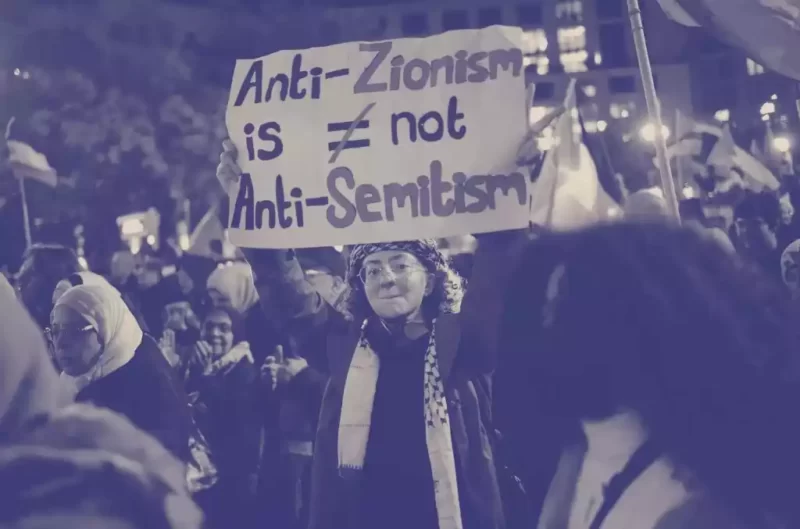If you ask ten people what is the definition of antisemitism and Zionism, you will get 10 different answers depending on whom you ask because of the influence of their culture, geography, and experiences. This incompatibility with one universal meaning confuses journalists, scholars, and even politicians. For example, to some, antisemitism is hate of the Jewish race, and to others antisemitism is criticizing Jewish actions. Why is it so difficult to pin down the meaning of antisemitism lies in the same layers of confusion most people have of the different political views Jews around the world embrace depending on their ideologies.
In other words, most purists see it as absolute, while most pragmatics view it as relative and sometimes inconclusive. The perplexity over what constitutes antisemitism often leads to generalized accusations without the details of what transpired. It is enough for one person to call another antisemitic for everyone to immediately assume it to be a Jew hating statement when in fact it could have been just a critic.
A good example of that lies in what Oscar-winning actor Susan Sarandon remarked during a pro-Palestinian rally when she said; “There are a lot of people afraid of being Jewish at this time, and are getting a taste of what it feels like to be a Muslim in this country.” To some, this is antisemitism. But they won’t say it out loud because they, the extremely conservative Jewish Americans, want to confuse the meaning of what is the definition of antisemitism.
The meaning of Zionism also confuses people across this country.
IS ANTI-ZIONISM ANTISEMITISM?
The meaning of Zionism also confuses people across this country. To the scholars, Zionism is Theodor Herzl’s dream of a Jewish state, which he called for in his essay Der Judenstaat in 1896. Herzl, basically, advocated for the Jews of Europe to create their own nation.
However, to many Arabs and Muslims, Zionism is Israel’s expansion of an already existent Jewish state as if its formation never ends. They justify that interpretation because Israel keeps expanding in the West Bank, and now has its eyes on Gaza, as some members of the Netanyahu cabinet have called for its annexation and ethnic cleansing. Being anti-Zionist does not mean you are an antisemite, rather, it tells the world you oppose Israeli expansionist policies at the expense of the Palestinian people.
Therefore, many on the right and the ultra-orthodox interpret it as antisemitism because they believe God gave them these lands, and therefore, any opposition is deemed as Jew hating. Disagreeing with their God-given rights to populate all of Palestine means you are a Jew hater.
The nuances and subtlety of the Israeli-Palestinian ongoing wars is more complex than most people realize.
DOES ZIONISM EXIST?
Mind you, whether Zionism exists is also a derivative of one’s understanding. Now that the State of Israel exists, logically Zionism should end if we take Herzl’s literal reading of his pamphlet. However, until Israel draws its final borders, which according to the extremist Jewish settlers is not a settled issue, Zionism prospers with every Kibbutz and every land they steal from the Palestinians.
On the other side, if a Palestinian thinks Zionism ended with the foundation of the state of Israel, then his anti-Zionist stand also means an anti-Israel existence stand. If not, a Palestinian tells you that he is an anti-expansionist of the State of Israel.
The nuances and subtlety of the Israeli-Palestinian ongoing wars is more complex than most people realize, and this is why the sentence “from the river to the sea” gives people such problems.
Some interpret it as anti-Israel existence, and others interpret it as freedom for the Palestinians from the river to the sea. Depending on whom you ask, and depending on the agenda of those who want to own the interpretations to suit their purposes.





